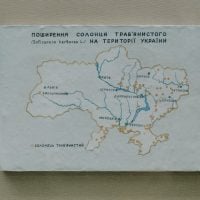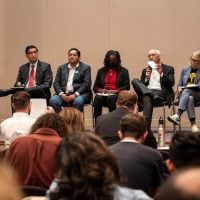Deadline: 4-Oct-22
If you want to connect with peers and professionals in School Education throughout Europe, Erasmus+ is the programme you’ve been looking for!
The European Union programme Erasmus+ funds projects for schools and other organisations active in the field of school education across Europe. This is to provide learning opportunities to individuals and to support internationalisation and institutional development of schools and other organisations in school education.
There are two main types of Erasmus+ School Education Projects ‘Short-term projects for mobility of pupils and staff’ and ‘Accredited projects for mobility of pupils and staff’. Participating schools and organisations should actively promote the programme priorities: inclusion and diversity, environmental sustainability and digital education.
They can do this by:
- making these priorities a focus of their projects
- raising awareness among participants
- sharing best practices.
Who Can Take Part in a Mobility Project?
Schools and other organisations active in the field of school education can apply to Léargas for funding.
- For Staff Mobility projects:
- Participants could include teachers, school leaders and all other non-teaching experts and staff working in school education. Non-teaching staff can also take part: this could be people working in school education such as teacher assistants, pedagogical advisors, or psychologists. It could also be people working in organisations active in school education like school inspectors, counsellors, policy coordinators in charge of school education, and so on.
- For Learner Mobility projects:
- Pupils can take part if they are enrolled in an education programme at the sending school.
- For Other Supported Activities
- Invited experts, hosting teachers and educators in training can apply.
- For Accredited Projects for Mobility of Pupils and Staff
- Organisations holding a valid Erasmus accreditation in school education can apply.
Eligible Countries
EU Member States take part in the Erasmus+ Programme. In addition, in accordance with article 16 of the Erasmus+ Regulation, the following third countries are associated to the programme:
- members of the European Free Trade Association (EFTA) which are members of the European Economic Area (EEA): Norway, Iceland, Liechtenstein.
- acceding countries, candidate countries and potential candidates: Republic of North Macedonia, Republic of Turkey and Republic of Serbia.
Eligibility Criteria
- Individuals constitute the main target population of the Programme. However, the Programme reaches these individuals mainly through organisations, institutions, bodies or groups that organise such activities. The conditions of access to the Programme therefore relate to these two actors: the “participants” (individuals participating in the Programme) and the “participating organisations” (including informal groups and self-employed persons). For both participants and participating organisations, the conditions for participation depend on the country in which they are based.
- As a general rule, participants in Erasmus+ projects must be established in an EU Member State or third country associated to the Programme.
- In general terms, the main target groups are:
- For projects relevant for the field of higher education, the main targets are: higher education students (short cycle, first, second or third cycle), higher education teachers and professors, staff of higher education institutions, trainers and professionals in enterprises;
- For projects relevant for the field of vocational education and training, the main targets are: apprentices and students in vocational education and training, professionals and trainers in vocational education and training, staff of initial vocational education and training organisations, trainers and professionals in enterprises;
- For projects relevant for the field of school education, the main targets are: school leaders, school teachers and school staff, pupils in pre-primary, primary and secondary education;
- For projects relevant for the field of adult education, the main targets are: members of non-vocational adult education organisations, trainers, staff and learners in non-vocational adult education;
- For projects relevant for the youth field the main targets are: young people from 13 to 3015, youth workers, staff and members of organisations active in the youth field;
- For projects relevant to the field of sport, the main targets are: professionals and volunteers in the field of sport, athletes and coaches.
For more information, visit https://www.leargas.ie/erasmus-plus/mobility-projects/school-education/









































